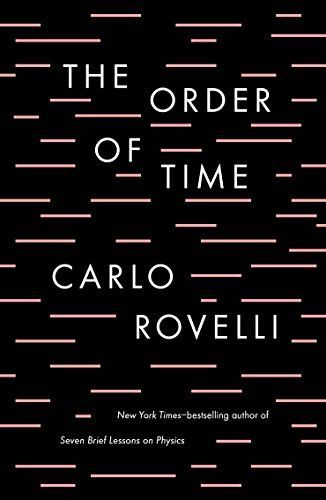
The Order of Time
'A dazzling book ... the new Stephen Hawking' Sunday Times The bestselling author of Seven Brief Lessons on Physics takes us on an enchanting, consoling journey to discover the meaning of time 'We are time. We are this space, this clearing opened by the traces of memory inside the connections between our neurons. We are memory. We are nostalgia. We are longing for a future that will not come.' Time is a mystery that does not cease to puzzle us. Philosophers, artists and poets have long explored its meaning while scientists have found that its structure is different from the simple intuition we have of it. From Boltzmann to quantum theory, from Einstein to loop quantum gravity, our understanding of time has been undergoing radical transformations. Time flows at a different speed in different places, the past and the future differ far less than we might think, and the very notion of the present evaporates in the vast universe. With his extraordinary charm and sense of wonder, bringing together science, philosophy and art, Carlo Rovelli unravels this mystery. Enlightening and consoling, The Order of Time shows that to understand ourselves we need to reflect on time -- and to understand time we need to reflect on ourselves. Translated by Simon Carnell and Erica Segre
Reviews
bella <3@bellaheart
Xiang@xiaoming
🪢@dictee
Ned Summers @nedsu
Cameryn Wright@cambam
Coleman McCormick@coleman
madina@humaintain
Olga V@berrybell
Tuago@iagomr
Catherine Flanagan@cascais
Johnny Noble@johnnydecimal
Kristof Revilak@kristofino
Daniel Lauzon@daneroo
Nelson Zagalo@nzagalo
jordan@jksbooks
Mohamed Nagi@monagi
Alfredo santos@alf
Mundy Otto Reimer@mundyreimer
Harsha G@harsha
Teresa Su@terisu
Hannah Tierney@htreads
Cindy Lieberman@chicindy
Ben Bleikamp@bleikamp
Fatin Allen@fatinallen
Highlights
Karmen @karmentorralba
Karmen @karmentorralba
bella <3@bellaheart
Page 208
bella <3@bellaheart
Page 210
bella <3@bellaheart
Page 182
bella <3@bellaheart
Page 168
bella <3@bellaheart
Page 167
bella <3@bellaheart
Page 150
bella <3@bellaheart
Page 141
bella <3@bellaheart
Page 140
bella <3@bellaheart
Page 112
bella <3@bellaheart
Page 170
bella <3@bellaheart
Page 167
🪢@dictee
Page 202
🪢@dictee
Page 16
madina@humaintain
Page 124
madina@humaintain
Page 123
madina@humaintain
Page 118
madina@humaintain
madina@humaintain
Laura Mei@thelibrariansnook
Laura Mei@thelibrariansnook
Laura Mei@thelibrariansnook
Najara Valente@najara